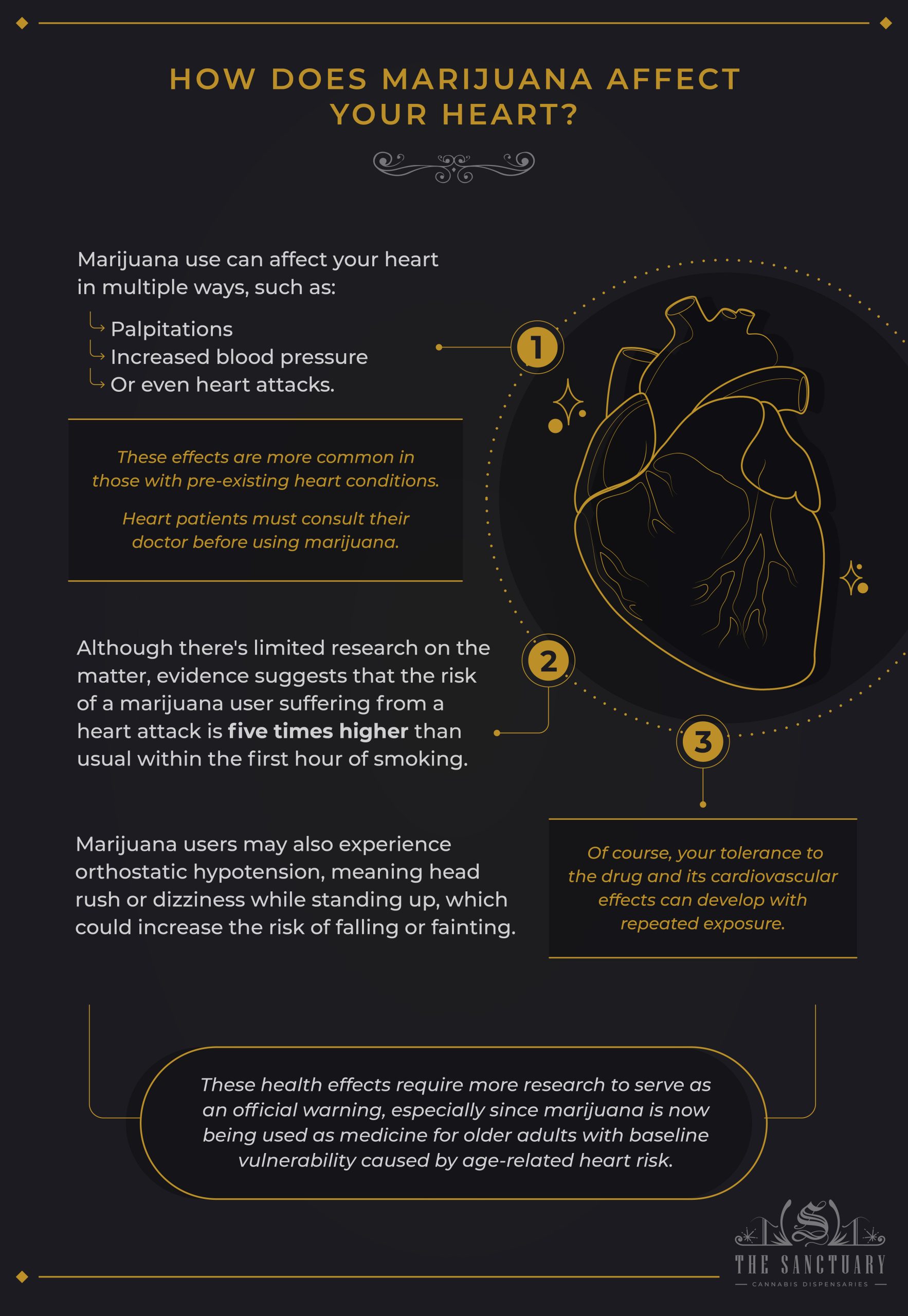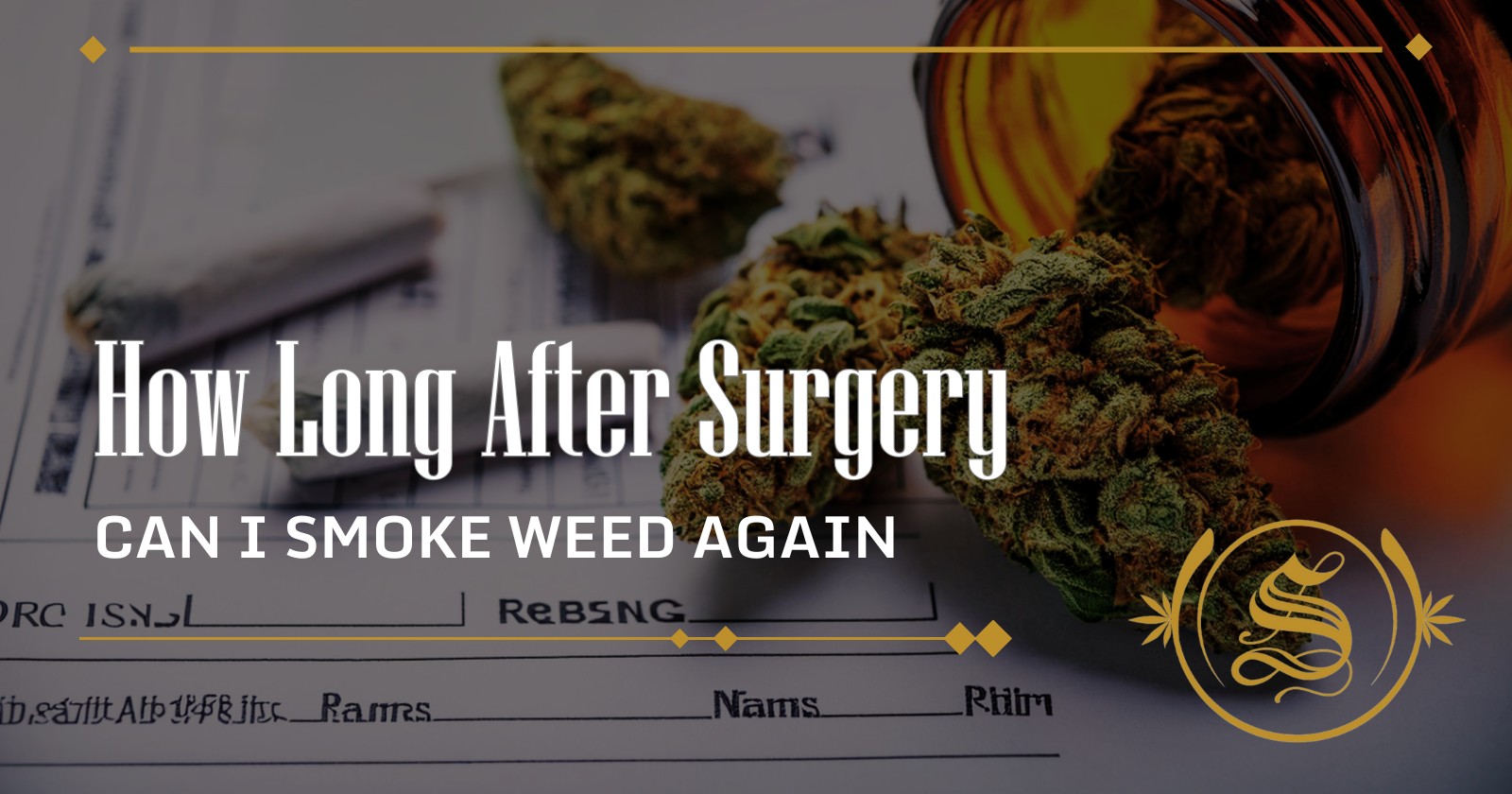Iftikhar Alam
Author
Reviewed by Cannabis Experts
Published on: May 10, 2023 | Updated on: September 11, 2024
Harvard Health Publishing states that Americans are more likely to use marijuana than smoke cigarettes. While the decline in cigarette smoking is great news, it’s worth noting that marijuana can be equally harmful to your heart health.
Today, marijuana is legal in 11 US states and is used for medicinal purposes in 33 states, treating anxiety, pain, and depression. Although this drug is known for its calming properties, research shows that it can increase the heart rates of inexperienced users or those with heart disease.
Keep reading to learn more about how marijuana can increase your heart rate and whether it’s safe for those with heart disease.
Can Marijuana Increase Your Heart Rate?
Yes, marijuana can increase your heart rate. The primary psychoactive component of the drug is THC, which can increase your heart rate shortly after use. Of course, inexperienced or occasional users may feel this effect more significantly than regular users. As the effects of marijuana wear off, the increase in heart rate also subsides.
The human heart rate is normally 70 to 80 beats per minute, but marijuana use can increase it by 20 to 50 beats per minute. In some cases, your heart rate may even double its average BPM, especially if you’re taking other drugs in conjunction.
Of course, various factors can also influence how marijuana affects your heart rate, such as your tolerance to the drug, the potency of the product, the method of consumption, and your overall health. Most people can tolerate an increased heart rate without negative consequences, but those with pre-existing cardiovascular disease may experience its effects more significantly.
In addition to an increased heart rate, they may experience palpitations and increased blood pressure. In the worst-case scenario, excessive or unauthorized marijuana use can cause heart attacks, especially for those with pre-existing heart conditions.
How Does Marijuana Affect Your Heart?

Marijuana use can affect your heart in multiple ways, such as palpitations, increased blood
pressure, or even heart attacks. These effects are more common in those with pre-existing heart conditions, so heart patients must consult their doctor before using marijuana for medicinal or recreational purposes.
Although there’s limited research on the matter, evidence suggests that the risk of a marijuana user suffering from a heart attack is five times higher than usual within the first hour of smoking. That’s mainly because marijuana use may increase your blood pressure and heart rate, reducing your blood’s oxygen capacity.
Marijuana users may also experience orthostatic hypotension, meaning head rush or dizziness while standing up, which could increase the risk of falling or fainting. Of course, your tolerance to the drug and its cardiovascular effects can develop with repeated exposure.
Still, these health effects require more research to serve as an official warning, especially since marijuana is now being used as medicine for older adults with baseline vulnerability caused by age-related heart risk.
Risks Involved With Marijuana Use
Multiple studies have highlighted a correlation between marijuana use in teenagers and an increased risk of nonseminomatous testicular germ cell tumor, which is an aggressive form of testicular cancer. The study also indicates that testicular cancer is also possible within just a few years of marijuana use.
In the worst-case scenario, chronic marijuana use can also cause the development of Cannabinoid Hyperemesis Syndrome, which results in severe bouts of vomiting, dehydration, and nausea. This condition typically occurs in long-term marijuana users under 50 years of age. It often results in frequent trips to the ER, but its simplest solution is to quit marijuana.
There’s no doubt that smoking marijuana also has similar side effects and risks to smoking cigarettes or vaping. That includes lung damage, lung cancer, and respiratory infections. Although any kind of marijuana use has risks involved, it’s safer to consume it in the form of edibles or tinctures.
Can You Smoke Marijuana If You Have a Heart Disease?
If you have any cardiovascular condition, it’s best not to smoke marijuana or consume any form of cannabis without discussing it with your doctor. Many studies indicate that marijuana use results in increased heart rate and blood pressure, which is a no-go for those with pre-existing heart disease.
If your preferred marijuana consumption method is smoking, it’s worth noting that it has similar risks to smoking cigarettes, such as lung cancer and respiratory infections. Of course, these conditions can only worsen your heart health in the long run.
If you must use marijuana for medicinal purposes as a heart patient, we recommend consulting your doctor to outline the potential benefits or risks. Your doctor may also provide alternative treatment options to avoid the side effects of marijuana use.
When using marijuana medicinally, it’s best to opt for non-smoking or non-vaping forms, such as tinctures or edibles.
Limitations in Marijuana Research
Marijuana has no currently-accepted medicinal use under federal law since it has a high potential for abuse. As a result, researchers must seek approval from various local, state, and federal agencies, which is why there are several limitations and inaccuracies in marijuana research, such as:
- Marijuana is currently available in varying potencies, compositions, and qualities, resulting in a lack of standardized products. This makes it tricky for researchers to compare studies and make definitive conclusions.
- The lack of standardized products also makes it hard to control the frequency of use and dosage in research studies.
- Marijuana is illegal under US federal law. Since it’s not readily available for research purposes, researchers find it hard to get their hands on high-quality marijuana products.
- In most cases, groups funding marijuana research have a vested interest in the results, so the study design and reporting may be biased.
- Marijuana users often use the drug in conjunction with other substances, such as tobacco or alcohol. This makes it harder to isolate the drug’s effects and health outcomes.
Due to these inaccuracies, it’s difficult to draw definitive conclusions about marijuana’s side effects. Still, it’s better to play it safe and avoid this drug altogether if you have pre-existing heart conditions.
If you’re using it medicinally, we recommend going for non-smoking options, using legal resources, researching interactions with other medications, and starting with a low dose.
The content provided on this blog is for informational purposes only and does not constitute medical, legal, or professional advice. Cannabis use is subject to local laws and regulations, which vary widely by jurisdiction. Always consult with a healthcare professional before starting any new treatment or altering an existing treatment regimen. The authors and publishers of this blog are not responsible for any actions taken based on the information provided herein. Use cannabis responsibly and in accordance with applicable laws. This blog is intended for adults aged 21 and over. The Sanctuary Dispensaries D186, D187.








